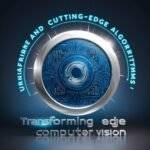Overview
Starting a career in Artificial Intelligence (AI) can be something to look forward to as it is a very promising field and something to challenge as the field of AI is growing at a fast pace and changing the world as we know it. AI is no longer just a term; it is real technology which is already changing the world and some of the fields are healthcare, finance, and logistics where we have a huge demand for skilled individuals. LinkedIn in a report issued in the recent year has shown that there has been an expansion by more than 75% of jobs in the market in the last five years that require AI competencies.
»So from scratch or if you are a computer science engineer, to become an AI professional you need to build a base in math and coding along with having knowledge about the concepts of AI involving machine learning and data science. On the way, project and internship-based experience helps in gaining practical carrying out knowledge of AI applications.
The journey to obtain an AI career is not easy, however, it holds a lot of bonuses that include the possibilities of being a developer of technologies that are present in the future. This guide will provide necessary first steps to follow, which will enable readers come up with a sharp and well-planned approach on how to begin pursuing a career in artificial intelligence.
Understanding the Ai Landscape
It may appear quite complicated to set a foot into the AI market, but if you have an understanding of the key fields then you are well on your way to being a professional in this field. Let’s dive in!
1. Key Areas of AI
Artificial intelligence refers to a broad set of technologies that solve different tasks and require different skills. Some of the main areas include: Some of the main areas include:
Machine Learning (ML): Allows systems to Adjust from data stored in it, and therefore make decisions without prior programming.
Deep Learning: A type of ML that is more developed than the previous one and uses artificial neural networks for data processing and analysis.
Natural Language Processing (NLP): Is concerned with making computers to Understand, analyze as well as process natural languages.
Computer Vision: Assists computers to understand the content of the images and videos.
Robotics: Designs machines to work on specific assignments singly or with some degree of independence.
2. AI Applications Across Industries
AI is establishing and changing a wide range of sectors which includes healthcare, finance, and many more. Some key applications include:
Healthcare: AI is applied to the discovery of drugs, in diagnosing diseases and in recommending treatment options.
Finance: AI utilizes includes fraud management, portfolio rebalancing and algorithmic trading.
Retail: AI is also used in the application of recommendation systems, chatbots, and demand drivers.
Transportation: It can be applied in self-driven cars, traffic control and in the overall management of transport and distribution systems.
3. Emerging Trends in AI
It is necessary to point out that nowadays the AI is developing constantly and new technologies and applications appear from time to time. Some of the latest trends include: Some of the latest trends include:
Generative AI: Applications such as the DALL-E model for image generation and
ChatGPT: a advanced AI model for text generation.
Edge AI: Real-time AI models being implemented directly on devices such as Mobile phones and other IoT Sensors for real-time computations.
Responsible AI: This is a subset of making artificial intelligence systems good by making them ethical, explainable, and non-discriminatory.
AI Governance: Policies and frameworks for the occasion of AI.
A. Current Trends in Artificial Intelligence
1. Deep Learning and Neural network development
Neural networks make up a deep learning, which is a branch of machine learning, that has transformed computer vision, natural language processing and speech recognition. Such trends arise from the availability of large datasets and improvements in GPU hardware which allows the models to ingest large amounts of data and learn nearly as quickly.
2. AI in Healthcare
Indeed, the adaptation of Artificial Intelligence to the healthcare system is growing day by day as it assists in diagnosing the diseases, treatment options, and even in drug development. Using AI, imaging tests can be understood as effectively as by doctors which in turn can improve the patient’s experience and create new jobs for experienced healthcare and life sciences specialists.
3. AI and Automation
AI is the new business buzzword that is changing industries by enhancing productivity by automating processes. This trend which includes robotic process automation and independent vehicles is creating employment opportunities for AI professionals who implement these automated systems.
Future Directions in Artificial Intelligence
1. Ethical AI and Responsible AI Development
It is that as AI systems enter or interweave with the society, ethical AI is getting more and more relevant. Future directions for AI will be toward establishing the following goals: fairness, explainability and accountability of the AI systems, arbitrations of the biases; data protection and ethical standards. Future AI professionals need to be aware of such issues as to promote the responsible development of Artificial Intelligence.
2. AI in Edge Computing
One emerging trend in AI is edge computing; this concept holds to the idea of processing data as close to the point of origin as possible to help with boosting real-time application like IoT and self-driving cars among others. This integration is not easy and calls for proficiency in both artificial intelligence and distributed systems creating an encourage for new careers in this blossoming field.
3. AI For Climate Change and sustainability
Today AI continues to increase its importance in solving world problems such as climate change in the future to work in the field of energy management, resource optimization, and sustainable technologies, which creates new opportunities for specialists in AI.
Building Essential Skills for An Ai Career
To begin a career in Artificial Intelligence AI one needs to combine both technical and interpersonal skills. Here is a brief outline of all the necessary skills that one is going need to develop.
A. Technical Skills
1. Programming Proficiency
Programming is basic in AI because it is the first step which has to be taken in developing artificial intelligence tools. Key languages include:
Python: It is the most used language in AI because of its simple syntax and availability of numerous frameworks such as TensorFlow and PyTorch.
R and Julia: Apply valuable for statistical analysis and such experts training AI niches.
C++ and Java: Favourable for use with performance-sensitive applications, particularly in robotics as well as in large-scale system environments.
2. Mathematics and Statistics
Mathematics knowledge is important again as the foundation for problem-solving. Focus areas include:
Linear Algebra: This is important for: representation and transformation of data.
Calculus: Essential when it comes to changes of algorithms.
Probability and Statistics: Essential when working within a data driven approach and when trying to interpret results of a model.
3. Machine Learning and Deep Learning
Knowledge of machine learning (ML) and deep learning (DL) is vital:Knowledge of machine learning (ML) and deep learning (DL) is vital:
Machine Learning: Knowledge about the algorithms such as regression, clustering as well as decision trees.
Deep Learning: Educating about the existing neural networks and frameworks and for such purposes as images and speech recognition.
4. Data Handling Skills
Data is central to AI. Skills include:
Data Preprocessing: This involves activities such as identifying and removing outliers, handling missing values and transforming data into a format that would allow movement of hypotheses.
Big Data Technologies: Information on how to work with analyst tools such as Hadoop and Spark to deal with big data.
B. Soft Skills
1. Critical Thinking and Problem-Solving
Analyze capabilities that are available are crucial in the analysis of various problems as well as coming up with their solutions. This requires the continuous challenging of everyday barriers and practices and the looking for and finding of the gaps and excess that clever in routinization.
2. Adaptability and Continuous Learning
Artificial intelligence is one of the most developing technologies in the world. Professionals must show the readiness to learn, and adapt with new technologies and methodologies.
3. Communication Skills
It is therefore important to be able to communicate effectively with for the purpose of working with the various teams which are involved in the project. It is relevant to be able to generate and incorporate public feedback which include translating technical problems to simple language.
4. Teamwork and Collaboration
AI projects as is apparent from this article can very well involve team work. By relating well to the others, it becomes easier to coordinate with them hence facilitating the flow of the project.

Professional Networking and community involvement for an AI Career
Almost in all the companies, it was noted that Networking and community involvement are essential for success in the AI field. It means that you have to start interacting with other individuals who have some experience in the field of artificial intelligence and be ready to promote your career to new level more effectively. This article explains several ways through which networking and community engagement can help you in starting up your AI career.
1. The Power of Networking
Networking is one of the most effective activities that will help a person in the promotion of his career path in AI. By connecting with industry peers, you can: By connecting with industry peers, you can:
Hear from the professionals out there about the new developments that are occurring in the field of AI.
Search for new positions and find some information about employers and positions.
Get proper guidance from people who have ventured into that area and succeeded in it.
Work on projects that are related and create a collection of projects that you can demonstrate you did.
2. Platforms for Networking
There are numerous platforms and channels for networking in the AI community:
LinkedIn: The professional social network is a place to get in touch with AI specialists. Develop a powerful profile of yourself and use it in posting relevant and appealing skills and experiences in the given groups and discussions.
AI-focused conferences and meetups: Engage in academics to meet researchers, engineers as well as other industry players through the AI Summit, NeurIPS, and more ICML. Such events are informative and beneficial in terms of networking and sharing ideas and creative solutions.
Online communities: Engage on the social media platforms such as the AI subreddit, Kaggle community, or Discord AI communities. These platforms support discourse, distribution of information, and even join people of the similar passion from all across the globe.
3. Engaging With Ai Comunity
The AI community has to be interactively engaged for the purpose of creating beneficial professional connections and for updates. Here are some ways to get involved:Here are some ways to get involved:
Contribute to open-source projects: Always ensure that you contribute to open-source AI projects with intent to contribute on social platform such as GitHub.
Attend and speak at events: Contribute to local meetups by volunteering to give talks or pitch proposals for talks and presentations to the conference.
Write and publish content: Begin a blog or contribute articles to publications in the field or even write to online platforms such as Medium to create a viewpoint as an expert in the fields of Artificial Intelligence.
Mentor and teach: Use your knowledge to become a tutor to intending AI specialists or provide education through giving out classes or workshops in your line of specialty.
4. Networking as a Strategy for Professional Growth
Networking: Networking usually creates opportunity for one and guns up the pace of career advancement in a specific field such as AI. Here are some tips for leveraging your network: Here are some tips for leveraging your network:
Reach out to connections for informational
Interviews: Reach out to people in positions or organizations you would like to work for and ask them for an informational interview to get insights of their experience and the field.
Ask for Referrals And Introductions: Take the opportunity to use contacts to gather recommendations and references as far as the employers of the desired organization are concerned.
Seek Advice and feedback: Take advantage of your connection and seek for any clarifications concerning any career choices, Practicing interviews or resume reviews.

Job Search Strategies Ai Career
How I got into the job search for a position in the field of Artificial Intelligence is detailed below: Here are methods of searching for a particular job in order to secure your preferred job:
1. Make good use of AI Job Search Tools
This makes it almost impossible for one to conduct a general job search as the application of AI has enhanced focused job search. Utilize AI-powered tools to enhance your job search: Utilize AI-powered tools to enhance your job search:
AI Job Matching Platforms: Some of these include Talentprise and Pyjama Jobs where you can filter the jobs based on your interest as well as the skills you possess. These tools scan your profile and then, recommend the right opportunities for you which saves time and efforts.
AI Resume Builders: Concerning creating resumes, you can use applications such as Teal and ChatGPT to generate the best resumes that meets the description of the provided job. They study the required positions to discover which particular keywords are crucial for matching as well as which particular words you must use and which ones to avoid when preparing an ATS-friendly application.
2. Optimize Your Online Presence
Looking for a job, your profile is of great importance to attract potential employers. Focus on the following:
LinkedIn Profile: Make certain that the profile you post on LinkedIn is done and matches the skills and experience you have. Interact with the resources related to the AI and build the network with like-minded people in the professional sphere.
Personal Website or Portfolio: Build your portfolio in the form of the website that contains information about your projects, abilities, and accomplishments. It can be used as a portfolio for the potential employers to relieve your work and determine your level of competence.
3. Network Actively
This makes networking an important activity especially for those who wish to work or are already working in the artificial intelligence industry. Here’s how to effectively build connections: Here’s how to effectively build connections:
Attend Industry Events: That is why it is recommended to attend AI conferences, meetups, and workshops from time to time. This is chance to get familiar with professionals, familiarize with tendencies and maybe find a vacancy.
Join Online Communities: Join online communities where AI is a topic of discussion such as Reddit’s AI communities or AI-based Discord servers. These can give information, job vacancies and potential partners and collaborators in a certain line of business.
4. Tailor Your Applications
For example, a generic application may not make much of an impact. Instead, customize each application:
Personalized Cover Letters: Ensure that you write the cover letter for each job post to ensure that the skills and the experience mentioned match those required for the job.
Keyword Optimization: Keywords must be taken from the job description and inserted into your resume and cover letter. This enhances the likelihood of going past what many employers use known as Applicant Tracking Systems (ATS).
5. Prepare for Interviews
Being well-prepared for interviews can set you apart from other candidates: Being well-prepared for interviews can set you apart from other candidates:
Research the Company: One should research a company’s mission statement, company’s values, and its projects completed within the last year. Such information will assist you to adjust your answers and express your concern.
Practice Common Questions: Two important practices when it comes to the AI-related interview questions: be ready to explain algorithms and/or describe your projects. Practicing interviews could also be effective in boosting the confidence of the employees.
6. Follow Up
When you are done with the interviews or a networking session, then compose an email of thank you. This is appreciative and puts you on the interviewer’s ‘radar’. Thus, with the help of these strategies in job search, you increase your likelihood of finding a job in the given competitive market of AI. So, bear it in mind that patience and flexibility should be your primary virtues while defining your further career in this promising sector.
Career Advancement in AI
To progress one’s career in the field of Artificial Intelligence (AI), planning, learning, and participation are necessary. Below, I will provide a brief guideline of how best to approach your career if you are interested in artificial intelligence.
1. Continuous Learning and Upskilling
It is therefore essential constantly update oneself with new information since the application of AI is in a state of constant development. Here’s how to stay updated: Here’s how to stay updated:
Online Courses and Certifications: Coursera, edX, Udacity – these are the platforms where you can find courses in or specialized courses in machine learning, deep learning, and data science. It could serve to upgrade individuals’ credibility and portfolio in case they wish to gain other relevant certifications.
Workshops and Seminars: Go to the workshops and seminars to be able to gain practical experience and tips from professionals. Usually such events help in covering various trends and technologies in artificial intelligence.
2. Specialization and Niche Roles
The opposite has been the situation as consumers and use cases of AI continue to grow and evolve requiring specialized talent. Consider these paths:
Focus Areas: Concentrate on subfields like natural language processing, computer vision or artificial intelligence and ethics. This expertise can translate you into a major asset in certain projects that you are involved in.
Hybrid Roles: This means that implementation of AI knowledge in context to a certain domain (e. g. healthcare, finance) is possible and can be a new opportunity. Such experts who know both AI approaches and the difficulties of a particular field are valuable for the companies.
3. Networking and Community Engagement
Building a strong professional network is crucial for career advancement Building a strong professional network is crucial for career advancement:
Join AI Communities: Go to Reddit, join local groups and communities, and become a member of a professional association. A number of social medias such as LinkedIn and GitHub are good for networking and sharing projects.
Mentorship: One should try to get employment under experienced persons in the field. It can offer them help & advice, ideas & tips, as well as employment references.
4. Gaining Practical Experience
Hands-on experience is invaluable for career growth: Hands-on experience is invaluable for career growth:
Internships and Projects: You should intern and also contribute to any open- source projects. This experience not only refines your abilities but also makes you acquire more experiences in your portfolio.
AI Competitions: To practice your skills in real-life scenarios try solving challenges in websites such as Kaggle. In these platforms people are given the chance to solve real life problems and at the same time get a recognition.
5. Career Planning and Goal Setting
Having a clear career plan can guide your advancement: Having a clear career plan can guide your advancement:
Set Short and Long-Term Goals: Find out where you want to be in the future especially in the next few years and probably write the steps that are required. This could be skills to gain, positions to attain or tasks to undertake among others.
Regularly Review Your Progress: A person should conduct self-evaluation of his or her skills and experiences from time to time. Make changes on goals and plans on industry trends and interest of the person.
6. Emphasizing Soft Skills
Technical skills are crucial, but soft skills are equally important: Technical skills are crucial, but soft skills are equally important:
Communication and Collaboration: Good communication skills and capacity to work in team are necessary in AI specializations.
Critical Thinking and Problem-Solving: Build your capacity for problem identification and more so creative problem-solving. These are essential skills to prepare for the issues emerging with AI workloads.
Conclusion
Artificial Intelligence is one of the arising fields that has various achievable and is considered as a strategic and modern field. To be successful one has to be knowledgeable, acquire and hone technical and soft skills, often participate in communities, meetups, conferences, workshops, discussions, get to know with professionals. Practice with internships, AI competitions and open-source projects.
It is necessary to monitor new trends and technologies that appear constantly and expand the range of professions and subspecialties within the field of artificial intelligence. Implementing such trends, a person is able to successfully orient in the field of AI and find an appropriate job to create a successful career. AI technology has a promising future and those that are going to embrace it want a better future they will enjoy the dividends.



